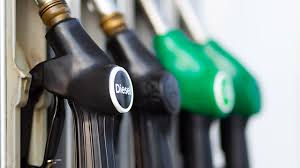Diesel or Petrol in Africa?
- Tip Toe

- Oct 13, 2019
- 2 min read
Updated: Mar 20, 2021
What type of fuel is more available at the road side in Eastern and Sub Saharan Africa – Diesel or Petrol?
I’ve started the planning for a ‘Cape to Cape’ trip in 2021. I know it seems like a long time away but ‘time flies’ as they say. I have called the project ‘Tip Toe’ (Tip of North Cape to the Toe at Cape D’Agulhas in South Africa. I have no idea if its going to be of any interest to anybody but I’m sharing the planning ‘warts and all’ on the website (www.tiptoeoverland.com). Early scans for information indicate that there’s a lot of information out there on the internet but it’s a real challenge to find the really useful practical stuff – like fuel availability at the road side / location of ‘petrol stations’ for example. Maybe I’m just not looking in the right places..….
I am going to capture and share what I learn and I’m hoping to improve the accuracy of information using feedback from those that have driven the roads before. My intent is that the website becomes more useful over time. If nothing else it should reduce planning time for others intending to do the trip in whole or part; maybe even those taking a self drive holiday in Africa.
Here's what I understand so far:
Gasoline (petrol) can be easier to find than diesel in the bush.
Diesel is generally available along the main trucking highways but these can be spaced further apart as trucks have bigger tanks.
Modern gasoline engines are better able to cope with poor quality fuel than modern diesel engines. (Beware emissions settings in engine management systems in modern diesel engines which can shut the engine down if fuel is not the right quality).
Diesel engines run cooler than petrol engines, deliver greater torque and offer better miles per gallon and are therefore cheaper.
Diesel is typically cheaper than gasoline.
I look forward to any feedback. Better knowledge of fuel availability will influence choice of vehicle (or at least the engine!).
Travel safely





Comments